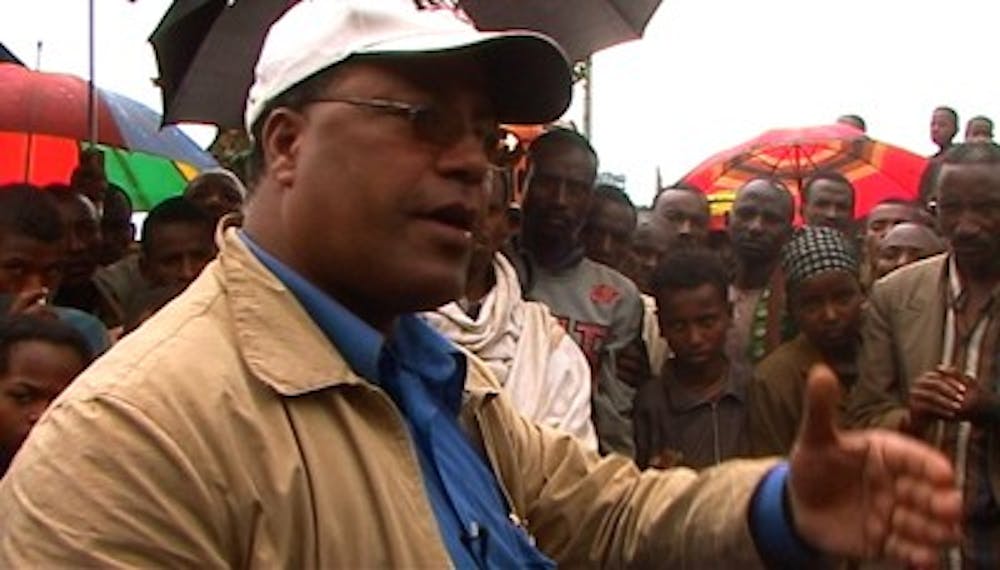Whether we brew our first cup or buy it from a local distributor, the coffee’s story may never cross our mind.\nThe Indiana Public Interest Research Group has decided to help people learn about the story their coffee tells by starting the Add Justice to Your Java campaign, a large informational campaign geared toward educating the student body about fair trade alternatives.\nThe campaign will continue Monday night with the film screening of “Black Gold” at 8 p.m. in the Collins Coffeehouse. The screening will include free coffee provided by Bloomington Coffee Roasters, so the research group has asked everyone to bring their mugs.\n“Black Gold” tells the story of Tadesse Meskela and his fight to save 74,000 Ethiopian farmers from bankruptcy by finding buyers willing to pay a fair price.\n“It’s a very enlightening story,” said Isabel Estevez, a member of the group, “and it offers an insider’s glance into coffee production.”\nPrior to the film, Indiana Public Interest Research Group members will distribute information and answer questions about fair trade alternatives in the Collins dining hall. To promote fair trade coffee, group members will be accompanied by a poster of the fair trade symbol, a man painted half white and half black, holding two baskets. They’ll have the head of the man in the poster removed so students can pose for pictures as the fair trade man.\n“We have to educate the people before anything can happen,” said Laura Nading, a group representative working on the current campaign.\nEstevez and Nading will help with the group’s Hunger and Homelessness campaign, which currently works on an international outreach program by promoting fair trade. Group members said they believe fair trade offers an alternative for the consumer. It gives farmers like those in the film “Black Gold” the money required to sustain their farms. It also assures consumers that the farmers receive just compensation for their products. But not all farmers receive the fair trade certification; they must first meet strict international criteria.\nAccording to the Global Exchange Web site, the U.S. consumes one-fifth of the world’s coffee. This means it is one of the largest consumers of coffee in the world.\nEstevez said a responsible consumer base is essential to the market.\n“It helps businesses understand what the consumer wants,” she said. \nThis allows the consumer to make responsible choices, which helps businesses do the same, Estevez said.
Research group to show film about fair trade coffee

Get stories like this in your inbox
Subscribe





